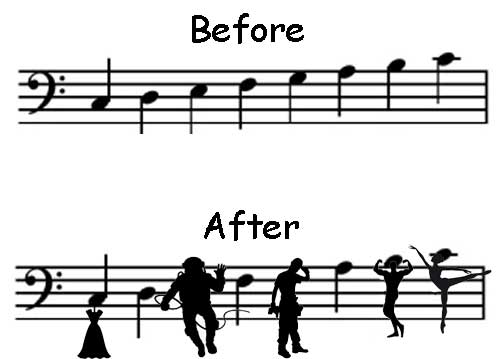
So, let’s say you’re the protagonist of one of those prestige TV dramas on Netflix. When you’re not delivering quips, you’re playing a deadly game of cat-and-mouse with some unknown enemy, unsure of whom among your circle of wacky supporting characters you can trust.
Get a free sample proofread and edit for your document.
Two professional proofreaders will proofread and edit your document.
If this describes your situation (and somebody out there must find it relatable, because there are a lot of these kinds of shows), then you need to be mindful of your personal safety. This month, we’ll look at some helpful tips for staying safe in a gothic teen melodrama while building your vocabulary, we have earlier with the difference between diffuse and defuse and telling uninterested from disinterested.
As always, ProofreadingPal is here to help!
Betray vs. Belie
Whether you’re investigating a conspiracy at your boarding school or caught in a web of lies at a luxury resort, the first rule of survival is, “Trust no one.” So it’s important to put up a good front, keeping your feelings and motivations hidden. It’s in this context of outward appearances concealing actual intentions that the words in our first pair occasionally get muddled.
The verb “betray” derives from the Latin trader (to hand over), a root related to such words as “traitor,” “treachery,” and “treason.”In your show, you’re likely to encounter many instances of betrayal in its more common senses: breaking a vow or telling a secret, siding with the enemy, letting someone down or turning against them, or influencing someone to make a wrong choice.
“You promised you’d wait for me,” Catherine sobbed. “How could you betray me so?”
This is the story of an innocent girl betrayed into a life of vice.
When we’re talking about appearances and reality, though, the object of betrayal is oneself. When you betray your true emotions, the mask slips; your deception fails, and you unintentionally let the truth show.
The cardsharp had an involuntary twitch that betrayed when he was bluffing.
Janine’s sighs betrayed her feelings about Robert, despite her pretended indifference.
Sometimes this disclosure of the truth is intentional, as with a hint, clue, or subtext.
The intentional misspellings betrayed the letter’s true nature as a coded message.
“Belie,” sometimes rendered as the idiomatic phrase “give the lie to,” has nearly the opposite meaning. Derived (as you might assume) from the word “lie” in the sense of deception, it implies a more-or-less successful concealment; that is, the subject of the sentence purposely or inadvertently gives a false impression regarding the object.
Norman’s unassuming manner belies his homicidal impulses.
But while “belie” usually has connotations of disguise or mistaken perception, it can also mean the intentional uncovering of contradictory information.
The detectives uncovered evidence belying Paul’s alibi.
The presence of defensive wounds gave the lie to the initial assumption of suicide.
And it’s here, with the exposure of hidden information, that it can be tricky to know which word to use. Two rules of thumb to guide you: First, you might betray either your own secrets or someone else’s, but by definition you belie somebody else’s falsehood. Second, remember that you beTRay something that’s TRue but beLIE something that’s, well, a lie.
Flush Out vs. Flesh Out
When an unseen assailant stalks you, it’s to your advantage to cause your enemy to reveal themselves—in other words, to flush them out. This phrase is etymologically unrelated to most other senses of “flush” (e.g., as a verb meaning to grow red in the face, as a noun meaning a flow of water, or as an adjective meaning set flat against a surface); it derives from a Middle English verb describing the sudden flight of a bird, and originally referred to hunters chasing quarry out into the open; by extension, it takes its meaning of bringing an enemy out of hiding.
Lord William’s hounds flushed out a bevy of quail.
Now, there may be a minor character in your prestige show whose motivations are underdeveloped or thinly written; or you may know the general outlines of your enemy’s evil plot, but not the specifics. The remedy in both scenarios is to make something more complete by adding details. “Flush out” is often mistakenly used here, but the correct choice is flesh out. In the metaphor underlying the idiom, the incomplete item is a framework or skeleton, needing tissue and skin to make it full or bring it to completion.
A skilled composer can take a simple melody and flesh it out into a full composition.

Discreet vs. Discrete
Lastly, to survive until next season, you’ll need to watch your step, not draw attention to yourself, and know when to remain silent or keep secrets. In short, exercise discretion (i.e., be discreet).
Janine was discreetly checking out the boys from behind her dark sunglasses.
Don’t confuse this with “discrete,” which means distinct, unconnected, or individual. This adjective is often used to describe members of a group or constituent parts of a whole, each of which is also complete in itself.
Spaghetti should cook up as discrete strands rather than as a sticky mass.
Both words derive from the same Latin root, meaning to distinguish or categorize (“discern” is also cognate), and were originally used interchangeably. With time, though, “discrete” gained connotations of categorization by sorting or separation, while “discreet” came to apply to more abstract kinds of distinction—i.e., prudence and good judgment.
Here’s a (slightly silly) mnemonic to help you remember the difference. Notice how in “discreet,” the lowercase “e”s are huddled together, as if one were whispering a secret in the other’s ear. In “discrete,” though, they’re kept apart, separated by the “t,” not a digraph, but two discrete “e”s.
Keeping these tips in mind should help you weather most of the threats you’ll encounter in your streaming drama, except for cancellation.
Jack F.
Get a free sample proofread and edit for your document.
Two professional proofreaders will proofread and edit your document.
Get a free sample proofread and edit for your document.
Two professional proofreaders will proofread and edit your document.
We will get your free sample back in three to six hours!